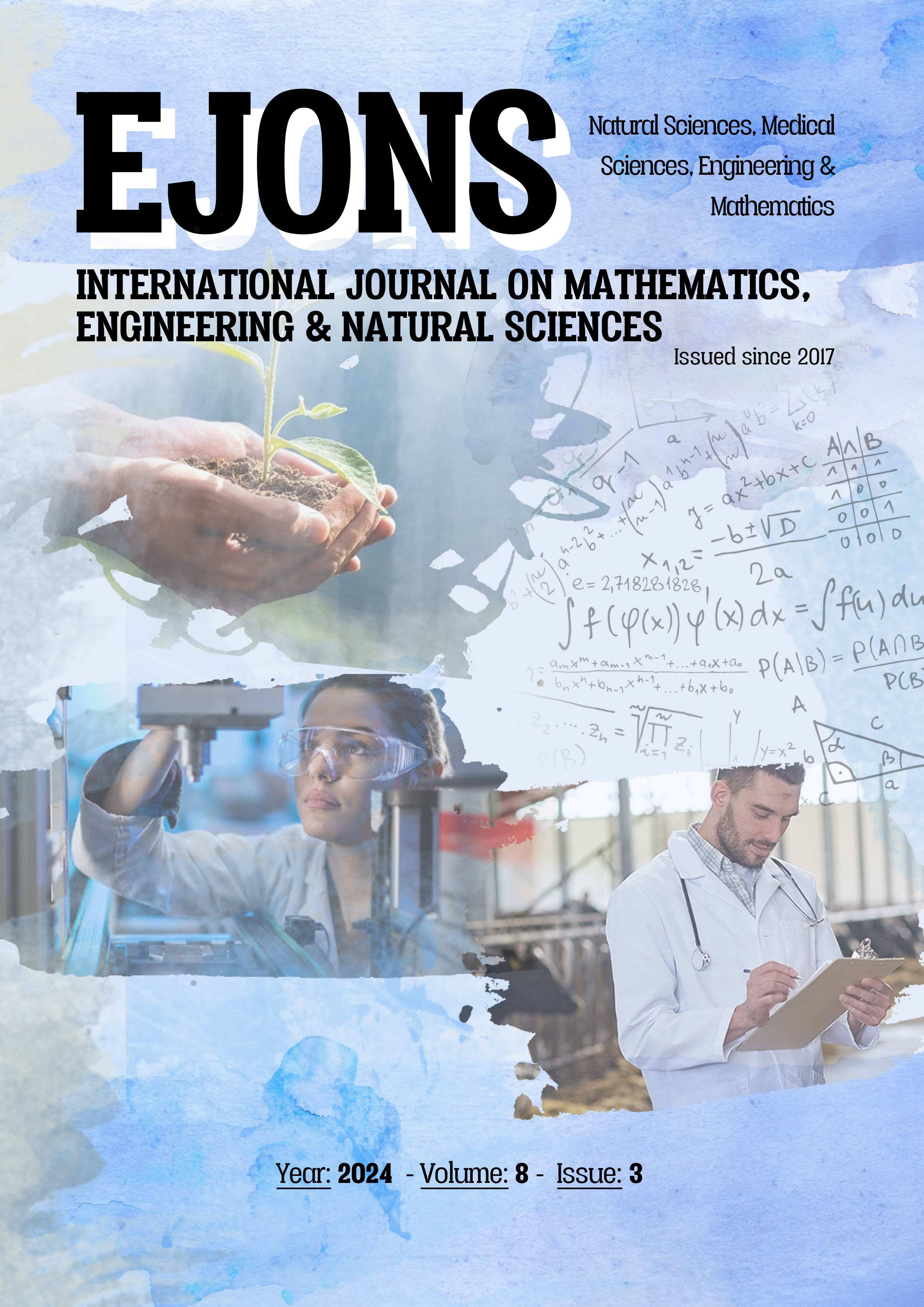The Strategic Role and Importance of Artificial Intelligence Companies in Digital Transformation
DOI:
https://doi.org/10.5281/zenodo.13825335Keywords:
Digital Transformation, Strategy, Artificial Intelligence Companies., Artificial Intelligence,Abstract
Digital transformation is a critical process to increase the competitiveness of businesses and improve their operational productivity in a world where technology evolves rapidly. In this transformation process, artificial intelligence (YZ) technologies play a strategic role in areas such as data analytics, automation and predictive analytics. YZ companies are at the center of the digital transformation process by specializing in the development and implementation of these technologies. The solutions offered by YZ companies provide deep insights to enterprises through analyzing large data sets. In this way, businesses optimize marketing strategies, personalize customer experience and improve operational processes. In addition, face -based automation systems reduce costs and increase productivity by accelerating business processes and decreasing human error. The strategic importance of the YZ in digital transformation lies in the ability to promote innovation. YZ companies develop new technological solutions and provide competitive advantage to enterprises and contribute to the emergence of innovative business models in different sectors. The applicability of the YZ, especially in sectors such as health, finance and production, is seen as an important factor that will shape the future achievements of enterprises. Artificial intelligence companies have a strategic importance in the digital transformation process and investing in these technologies creates a critical strategy for enterprises to achieve a sustainable competitive advantage. In this study, it aims to evaluate the role of YZ companies in digital transformation and the strategic advantages of these technologies to enterprises.
References
AL-ABABNEH, Hassan Ali, Victoria Borisova, Alina Zakharzhevska, Polina Tkachenko, ve Natalia Andrusiak. 2023. “Performance of Artificial Intelligence Technologies in Banking Institutions”. WSEAS Transactions on Business and Economics 20:307-17. doi: 10.37394/23207.2023.20.29.
ÅSTRÖM, Josef, Wiebke Reim, ve Vinit Parida. 2022. “Value creation and value capture for AI business model innovation: a three-phase process framework”. Review of Managerial Science 16(7). doi: 10.1007/s11846-022-00521-z.
BARREDO Arrieta, Alejandro, Natalia Díaz-Rodríguez, Javier Del Ser, Adrien Bennetot, Siham Tabik, Alberto Barbado, Salvador Garcia, Sergio Gil-Lopez, Daniel Molina, Richard Benjamins, Raja Chatila, ve Francisco Herrera. 2020. “Explainable Artificial Intelligence (XAI): Concepts, taxonomies, opportunities and challenges toward responsible AI”. Information Fusion 58. doi: 10.1016/j.inffus.2019.12.012.
BLAHUŠİAKOVÁ, Miriama. 2023. “Business process automation: New challenges to increasing the efficiency and competitiveness of companies”. Strategic Management 28(3). doi: 10.5937/straman2300038b.
DWIVEDI, Yogesh K., Laurie Hughes, Elvira Ismagilova, Gert Aarts, Crispin Coombs, Tom Crick, Yanqing Duan, Rohita Dwivedi, John Edwards, Aled Eirug, Vassilis Galanos, P. Vigneswara Ilavarasan, Marijn Janssen, Paul Jones, Arpan Kumar Kar, Hatice Kizgin, Bianca Kronemann, Banita Lal, Biagio Lucini, Rony Medaglia, Kenneth Le Meunier-FitzHugh, Leslie Caroline Le Meunier-FitzHugh, Santosh Misra, Emmanuel Mogaji, Sujeet Kumar Sharma, Jang Bahadur Singh, Vishnupriya Raghavan, Ramakrishnan Raman, Nripendra P. Rana, Spyridon Samothrakis, Jak Spencer, Kuttimani Tamilmani, Annie Tubadji, Paul Walton, ve Michael D. Williams. 2021. “Artificial Intelligence (AI): Multidisciplinary perspectives on emerging challenges, opportunities, and agenda for research, practice and policy”. International Journal of Information Management 57. doi: 10.1016/j.ijinfomgt.2019.08.002.
FELİCİANO-CESTERO, María M., Nisreen Ameen, Masaaki Kotabe, Justin Paul, ve Mario Signoret. 2023. “Is digital transformation threatened? A systematic literature review of the factors influencing firms’ digital transformation and internationalization”. Journal of Business Research 157. doi: 10.1016/j.jbusres.2022.113546.
FITZGERALD, Michael, Nina Kruschwitz, Didier Bonnet, ve Michael Welch. 2013. “Embracing Digital Technology: A New Strategic Imperative”. MIT Sloan Management Review.
FRANKI, Vladimir, Darin Majnarić, ve Alfredo Višković. 2023. “A Comprehensive Review of Artificial Intelligence (AI) Companies in the Power Sector”. Energies 16(3).
FÜLLER, Johann, Katja Hutter, Julian Wahl, Volker Bilgram, ve Zeljko Tekic. 2022. “How AI revolutionizes innovation management – Perceptions and implementation preferences of AI-based innovators”. Technological Forecasting and Social Change 178. doi: 10.1016/j.techfore.2022.121598.
HARIRI, Reihaneh H., Erik M. Fredericks, ve Kate M. Bowers. 2019. “Uncertainty in big data analytics: survey, opportunities, and challenges”. Journal of Big Data 6(1). doi: 10.1186/s40537-019-0206-3.
HOFFMAN, Robert R., Shane T. Mueller, Gary Klein, Mohammadreza Jalaeian, ve Connor Tate. 2023. “Explainable AI: roles and stakeholders, desirements and challenges”. Frontiers in Computer Science 5. doi: 10.3389/fcomp.2023.1117848.
HU, S. Jack. 2013. “Evolving paradigms of manufacturing: From mass production to mass customization and personalization”. içinde Procedia CIRP. C. 7.
HUANG, Heshu, Caiting Wang, Liukai Wang, ve Larisa Yarovaya. 2023. “Corporate digital transformation and idiosyncratic risk: Based on corporate governance perspective”. Emerging Markets Review 56. doi: 10.1016/j.ememar.2023.101045.
JANIESCH, Christian, Patrick Zschech, ve Kai Heinrich. 2021. “Machine learning and deep learning”. Electronic Markets 31(3). doi: 10.1007/s12525-021-00475-2.
KRETSCHMER, Tobias, ve Pooyan Khashabi. 2020. “Digital Transformation and Organization Design: An Integrated Approach”. California Management Review 62(4). doi: 10.1177/0008125620940296.
KRITZINGER, Werner, Matthias Karner, Georg Traar, Jan Henjes, ve Wilfried Sihn. 2018. “Digital Twin in manufacturing: A categorical literature review and classification”. içinde IFAC-PapersOnLine. C. 51.
LEDERER, Matthias, ve Joanna Riedl. 1M.S. “Data Science Techniques in Knowledge-Intensive Business Processes: A Collection of Use Cases for Investment Banking”. https://services.igi-global.com/resolvedoi/resolve.aspx?doi=10.4018/IJDA.2020010104 1(1).
LEE, Hong Joo, ve Hoyeon Oh. 2020. “A study on the deduction and diffusion of promising artificial intelligence technology for sustainable industrial development”. Sustainability (Switzerland) 12(14). doi: 10.3390/su12145609.
LIAO, S. Matthew. 2020. Ethics of artificial intelligence.
MATT, Christian, Thomas Hess, ve Alexander Benlian. 2015. “Digital Transformation Strategies”. Business and Information Systems Engineering 57(5).
MONTERO Guerra, José Manuel, Ignacio Danvila-del-Valle, ve Mariano Méndez Suárez. 2023. “The impact of digital transformation on talent management”. Technological Forecasting and Social Change 188. doi: 10.1016/j.techfore.2022.122291.
Downloads
Published
How to Cite
Issue
Section
License
Copyright (c) 2024 EJONS INTERNATIONAL JOURNAL

This work is licensed under a Creative Commons Attribution-NonCommercial 4.0 International License.


